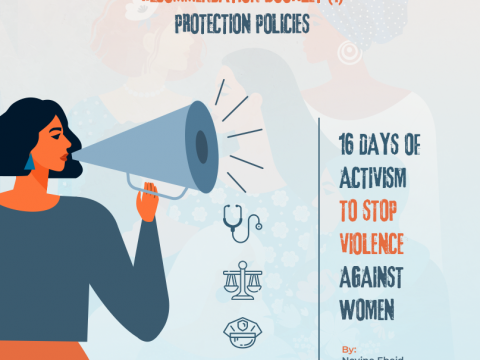- Contact Us
- 0020233382706
- nwrc@nwrcegypt.org
Civil Society Organizations: The Government Must Commit to Publishing its Proposal and Ensuring a Transparent and Binding Societal Debate
Forum of Independent Human Rights Organizations asks Egyptian government to set deadline on the implementation of its pledges; declares One Hundred Days campaign to monitor the seriousness of the government’s commitment
March 24, 2014With the Launch of Discussions on the State BudgetLOGO-NWRC2 The undersigned organizations call on the interim government to immediately publish the proposed bill for the state’s general budget for fiscal year 2014/2015, following the finance ministry’s failure to fulfill its legal obligations, after April 1st of this year had gone by without publishing the draft.
April 15, 2014With the Launch of Discussions on the State Budget
The undersigned organizations call on the interim government to immediately publish the proposed bill for the state’s general budget for fiscal year 2014/2015, following the finance ministry’s failure to fulfill its legal obligations, after April 1st of this year had gone by without publishing the draft.
Evidence confirms the current interim government’s lack of interest in reversing the situation. This would mean that, for the third time in a row, the state’s general budget will be adopted without passing through the discussion phase, which was supposed to be carried out by members of the parliament, acting as peoples’ representatives, and without holding a real societal debate as an alternative.
The state budget and its application on the ground are the true mirror of state economic policies and their biases to meet the needs of both en and women. The impact of economic policies during the term of the deposed president had been one of the more important factors leading up to the January 25 Revolution, which deposed him. Yet the general budgets enacted in the years following the Revolution clearly showed the absence of any intention of substantially modifying such policies. In return, the process of preparing, drafting, and reviewing the state budget in the years following the Revolution, witnessed a sharp decline in its ability to realize the requirements of transparency and the possibility of accountability.
According to the state general budget law and the 2014 constitution, the government, represented by the finance ministry, is committed to publishing several basic documents presenting the state budget in detail. They are:
- The state general budget draft.
- The draft budgets of economic bodies.
- The draft budgets of public sector companies and holding companies for the public business sector.
Additionally, the government is committed to publishing a citizen’s budget, containing a simplified description of the details for non-specialists, and the program budget, illustrating the state’s utilization and resources based on economic and social projects and programs.
All such documents should be available for the general public no later than April 1st of each year, which is when the parliament is expected to begin discussing the state budget bill. Following approval, it should be adopted through a law issued by the president of the republic no later than the end of June. This is before the state budget comes into effect at the beginning of the fiscal year on July 1st.
Laws governing this operation are intended to achieve the required separation between the legislative and executive powers, by allowing the state budget to be discussed by the people’s representatives prior to being enacted by the government.
Although the law does not provide for an alternative to this process in the parliament’s absence during the discussion period, successive governments after the Revolution have failed to organize a real societal debate as an alternative to the absent parliamentary role. This means that state budgets enacted in those years are surrounded by suspicions of conflict of interest related to their preparation, drafting, and implementation by the executive branch in a unilateral manner.
The finance ministry’s failure to publish these budget bills before being adopted by the head of the executive branch at the time had completely disposed of any public role in their review, even in the media and various means of communications. This situation is repeated this year for the third time, as April 1st went by without the finance ministry issuing any of the documents required by law to be released prior to that date.
In conclusion, the undersigned organizations call on the government to hold a societal dialogue on the budget bill, which should be comprehensive and representative of the various segments of the population. They also call on the interim president of the republic to take the outcome of this societal debate into consideration in adopting the budget.
The undersigned organizations stress that such measures are particularly needed in the absence of the parliament and because of the transitional phase, which is witnessing various political, economic, and social crises.
Signatories:
l Egyptian Association for Collective Rights
l Egyptian Initiative for Personal Rights
l Egyptian Center for Social and Economic Rights
l Association for Health and Environmental Development (AHED)
l Association for Freedom of Thought and Expression
l New Woman Foundation
l South Center for Rights




